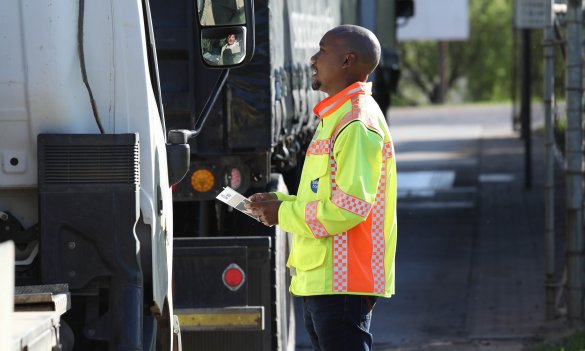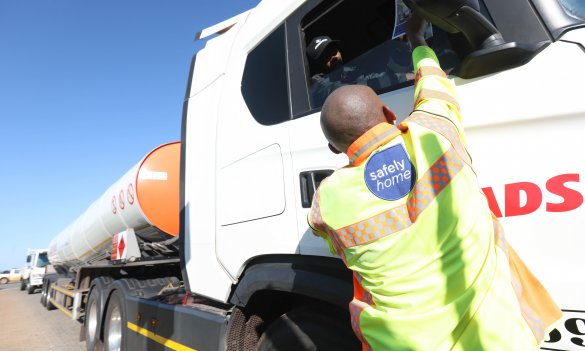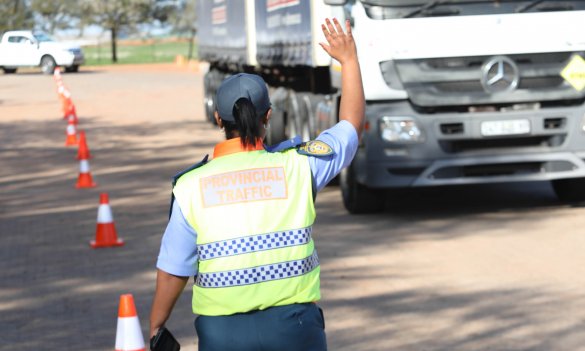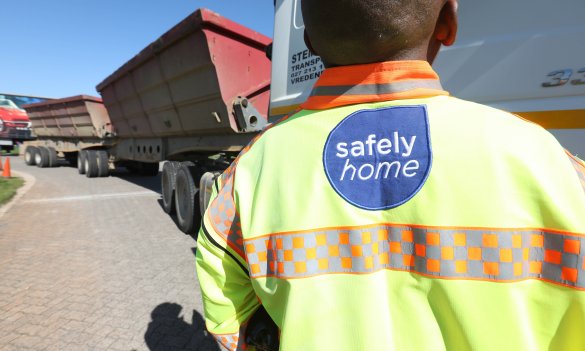Media Release by Daylin Mitchell, Western Cape Minister of Mobility
Western Cape Provincial Traffic Officers continue to play an important role in making our communities safer, as demonstrated in last week’s drug arrests.
On 30 July, a man driving along the R406 near Genadendal was stopped and searched. The officer found 188 parcels of dagga worth R10 000 in the vehicle and arrested the driver. In another incident, a provincial traffic officer stopped and searched a vehicle between Sir Lowry’s Pass and Grabouw. The driver was under the influence of alcohol and the officer found a bag of Mandrax in the vehicle. All three occupants were arrested. In a third incident, two people were arrested at a roadblock at Somerset West for possession of 32 units of cocaine.
I commend the officers for their continued efforts to stop Western Cape roads from being used to transport illegal drugs. Their efforts ensure that drugs are seized before they get to our communities and harm families.
A total of 258 integrated roadblocks, vehicle check point and speed control operations were implemented across the province in the week of 25 to 31 July 2022, and 32 400 vehicles were stopped and checked.
A total of 260 speeding offences were recorded and 8 373 fines were issued for various traffic violations ranging from driver to vehicle fitness.
Eighteen vehicles were impounded and 111 were discontinued for unroadworthiness.
Speeding remains a serious concern. The faster you drive, the less time you have to respond to an emergency and the more space you need to stop to avoid a crash. The highest speeds recorded this week were as follows:
- 178 km/h in a 120 km/h zone
- 139 km/h in a 100 km/h zone
- 114 km/h in a 80 km/h zone
- 90 km/h in a 60 km/h zone.
National Road Traffic Act and Criminal Procedure Act
Other arrests were made for the following offences:
- 45 x driving under the influence of alcohol.
- 5 x speeding.
- 3 x reckless and negligent driving.
- 1 x goods overloading.
- 9 x possession of fraudulent documentation.
- 2 x bribery.
- 1 x possession of stolen vehicle.
- 1 x obstructing or hindering an authorised officer in the execution of his/ her duty.
Fatalities recorded between 25 to 31 July 2022
A total of 24 crashes occurred in the reporting period, and 27 fatalities were recorded:
- 3 x drivers.
- 2 x motorcyclists.
- 4 x passengers.
- 18 x pedestrians.
It won’t kill you to slow down.
Speeding dramatically increases the chances of a crash, because the faster you drive, the less time you will have to react to emergencies. The Department requests drivers to reduce their speed when roads are wet and visibility is poor, because it will take longer to stop.
Speeding also increases the severity of a crash. The impact forces of crashes on people are massive. If a vehicle travelling at only 60km/h crashes, for a person who weighs 55kg without a seatbelt, it will feel like being hit with a force of 19 500kg! If the person is wearing a seatbelt, the impact force will still be a massive 3 800kg. At 90km/h, the impact force on the same person will be 43 800kg without a seatbelt, and over 8 700kg with a seatbelt. At 120km/h, the force on this 55kg person will be 77 800kg without a seatbelt, and 15 500kg with a seatbelt.
According to a study conducted by the Council for Scientific and Industrial Research (CSIR), the cost of crashes in 2015 was almost R143bn – equivalent to 3.4% of Gross Domestic Product (GDP) in that year, not including the infrastructure costs. Human casualty costs made up 69.35% of the R143bn total; incident costs, 14.9%; and vehicle repair costs, 15.8%.
Human casualty costs comprise hospital costs, emergency medical service costs, funeral costs, and lost earnings through death and disability. Incident costs include on-scene costs (e.g., police and traffic officials having to attend the scene), tow truck costs, and the cost of congestion and delays to other traffic. Vehicle damage costs include the costs of repairing, replacing, and having to rent a vehicle.
Crashes have tremendous socio-economic impacts. Crash victims may be disabled, lose income or lose jobs. Losing a breadwinner could mean living in poverty, losing a parent, or losing a home. Losing a loved one could mean psychological trauma and disruption to family life.
Never drink and drive. Never drink and walk near a road. If you have been drinking, make other arrangements to get home. If you are stopped by a traffic law enforcement officer and the officer suspects that you are over the legal limit, you will be arrested. If you are convicted of driving under the influence of alcohol, you will have a criminal record.
Make sure that you can see other road users and that they can see you in the rain, mist and fog of winter. Keep a safe following distance when visibility is poor, especially when the road is wet. Take careful note of pedestrians, cyclists and motorcyclists.
If you drive a public transport vehicle, be extra careful throughout your journey. Make sure your vehicle is roadworthy and that your operating licence is in order.
If you drive a long-distance heavy motor vehicle, make it a regular habit to stop and rest. It is also important to prepare yourself mentally and physically for the long road ahead between provinces by resting before trips, practising safe health protocols, eating well, hydrating yourself throughout the journey with water, and remaining vigilant about the risk of criminal activity.
It won’t kill you to slow down. Think carefully about how fast you are driving. Also make sure that you wear your seatbelt, that your passengers are wearing theirs, and that small children are strapped in an age-appropriate harness.
Media Queries:
Ntomboxolo Makoba-Somdaka
Spokesperson for Minister Daylin Mitchell
Cell: 082 953 0026





